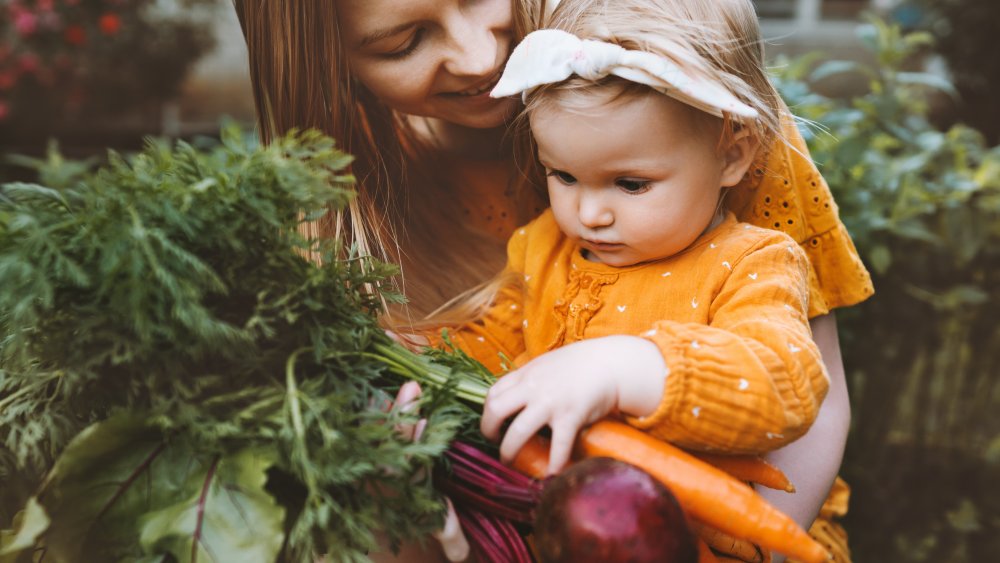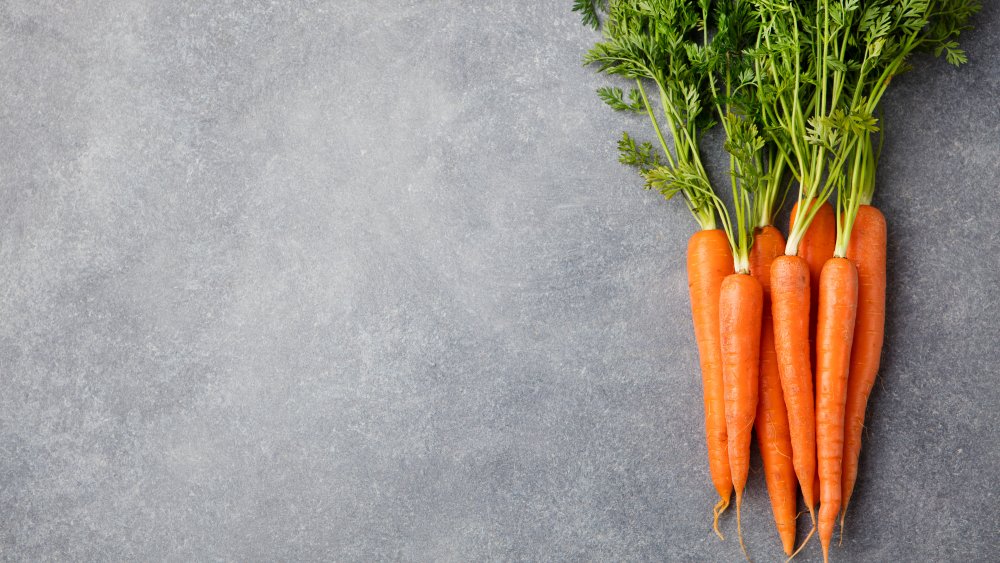Why You Should Think Twice About Eating Baby Carrots
Since baby carrots made their debut on supermarket shelves in the 1980s, carrot consumption went up nearly 33 percent, according Dr. Weil. Over the decades, they've provided a quick option for a boost of veggies and an easy snack. But, recently, various groups have called their purity into question.
Baby carrots are actually large carrots that are cut and peeled into smaller versions of the vegetable. They're rinsed in chlorine to prevent food-born illness and then washed again with water, the outlet notes. This is a common practice among freshly cut produce items that eventually hit shelves, Food Network explains. Once they're cut, washed and rinsed, the baby carrots get sorted into bags to be shipped all over the country. Their popularity stems from their great taste as well as their high nutrient content; simply put, carrots are a simple way to add extra flavor and nutrients to various dishes.
However, some people steer clear of baby carrots because regularly ingesting chlorine from the washing process can pose health risks.
Baby carrots have fewer nutrients than regular carrots
If ingesting trace amounts of chlorine doesn't bother you, it's also worth noting that the washing and cutting process that baby carrots go through may actually hamper their nutrient content. Livestrong explains that baby carrots contain 20 percent less Vitamin A than regular carrots, but still provide high levels of the nutrient. Vitamin A helps maintain immunity, organ function and healthy vision, the outlet notes, and eating carrots is one of the best ways to boost your intake of this vitamin.
Baby carrots also come up short in terms of Vitamin C content as well. The nutrient that keeps your immune system strong and protects your body from free-radical damage, Vitamin C levels in baby carrots are nearly 55 percent lower than regular carrots. While regular carrots are considered a good source of this vitamin, baby carrots are not, according to Livestrong. Other nutrients that many get from their carrots like Vitamin K, fiber and potassium also come in lower supply from the shorter versions.
While washing and peeling your own carrots may add time to your prep work, it's worth noting that you may be leaving valuable nutrients on the table.

